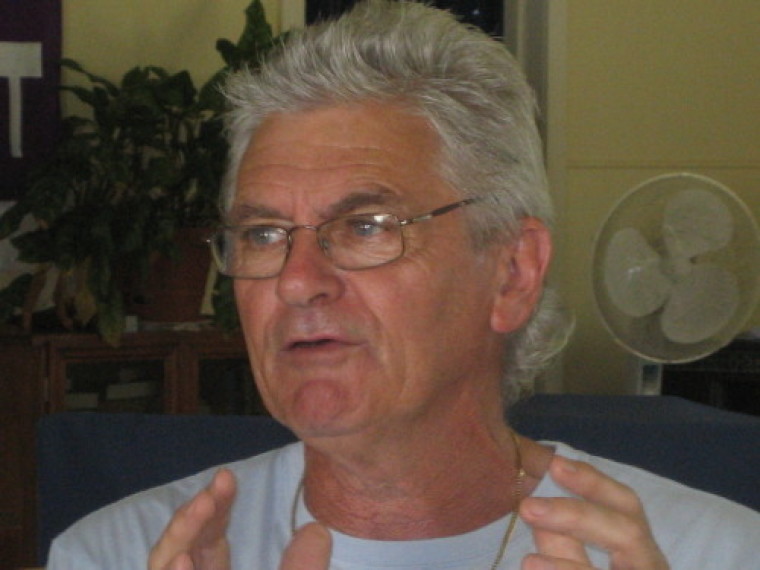
"We have in our power the potential to use sport as a positive, non-judgemental way to bring normality of life to disadvantaged communities. Although there are a lot of effective programs already, the question of 'how much is too much?' becomes 'how much is not enough' if there is even one person who can still be helped," Baptist Minister M V Tronson explained.
Tronson was the Australian Cricket Team Chaplain for 17 years until 2000 upon ill health and now in semi-retirement, moved across to 'Life After Cricket' with a broader Australian cricket chaplaincy.
Ministering in this Australian cricket chaplain role for 23 years he has witnessed how sport is a great communicator. Through Well-Being Australia, he has established 'Country Town Tours' where athletes and coaches visit rural centre as role models.
For example, Tony Dunkerley, Victorian Football (soccer) Commissioner for Juniors, former Victorian U/21 Coach and Assistant Australian Joeys Coach is a regular on these 'Country Town Tours'.
"Churches with 'sports teams' linking with existing church agencies or through the Taskforce will lend itself to improved well-being in my view," M V Tronson said. "Either teams could visit indigenous centres or indigenous teams could visit churches with recreational centres, to provide them with another view of life outside their communities."
Another area of opportunity is with Aboriginal communities in cities where exchange sports visits might be possible. The uplift factor such trips encounter is a remarkable therapeutic agent and more so where mentoring becomes part of the equation
"There is a window of opportunity here for local churches with sports engagement to make a difference, particularly in isolated communities that has so far fallen outside the radar," M V Tronson explained.
One way of providing hope and a belief in the future for troubled individuals is by providing a supportive environment where internalised hurts can be discussed.
The mentors can work with those who are liable to go off the rails because of this pent-up frustration, while maintaining the respect and sense of worth of these troubled people as important members of a sporting team.
Sportsmen and sportswomen all have attitudes and experiences in common. It has been shown that young men and women will often express their troubles to others within a non-threatening team, and if necessary, more help can be sought for them.
Sometimes just talking to a sympathetic ear is sufficient to de-fuse a possible emotional explosion. Without that opportunity, some of these talented young people may be left by the wayside of society.
"Any program that works toward preventative care inevitably has a financial saving at national, state and local community levels. Sport has been a player in this endeavour," M V Tronson explained. "There is no reason why it can't play an even greater part, if, for example, individual churches can link with sports teams from isolated communities."
Jacob Pilot, spokesman for Minister for Indigenous Affairs Mal Brough's office 'Indigenous Taskforce', told Mark Tronson that they recognize sport is a crucial component in maintaining and creating healthy communities.
Such a church project is too large for any one Christian agency to co-ordinate across the board, the suggestion is to work through existing church indigenous agencies 'for grass roots' well-being.